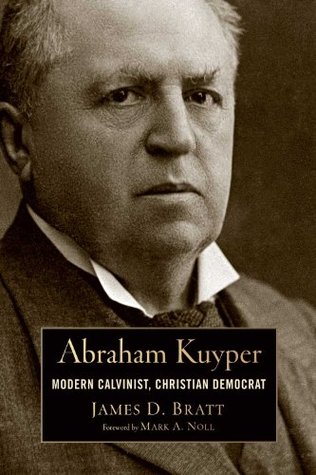More on this book
Kindle Notes & Highlights
Read between
January 16 - February 4, 2018
Most Baptists in the North had shifted over to the Republican Party by the time of Kuyper’s visit, but the two parties by no means showed the clear Christian-secularist division familiar to him from the Continent.
Democrats in 1898 were the party of cultural pluralism, ethnic diversity, and local control; Republicans stood for a unitary nation and firm moral tone under WASP control.
Gilman exemplified how a genuine American Christian, as he was, came to terms with it: he made faith personal, peripheral to the business of scholarship.
Kuyper astutely captured the connection between theological liberalism and the millionaire donors who had made seminaries independent of churches and thus marginalized the voice of the common people.
Kuyper proved very influential in the younger and less prestigious Christian Reformed Church,
because it denied purposeful design in the process.
Surveys of the German working class at the time discovered that most of those who considered themselves socialists had been converted from their native Christianity not by Marx but by “Darwin” as transmitted by interpreters like Haeckel.
By a one-vote margin, after some of the most intense debates in Dutch parliamentary history, the Lower House made elementary education compulsory for all children. Kuyper objected that the lack of enough Christian schools to serve orthodox parents’ demands would effectively force their children into secular education. In the courts, juvenile law started moving from punishment to education in dealing with youthful infractions — eroding the moral basis of social order, Kuyper complained.
as religion and politics both involved fundamental convictions, they necessarily bore implications for each other.
Faith in politics works by “the formula of a Christianity beneath differences in belief.”
25,000-word Gladstonian oration
To a query about what Calvinistic chemistry would look like, he answered with long citations from Kant on the organic interpenetration of all the sciences within a framework of organizing principles.
knowing God via the will
the will was a democratic faculty fit for the new twentieth century, as the intellect was not.
Ghettoization had created a Jewish nation within every nation east of the Elbe, a situation that Ottomans could manage but Europeans could not. The rising ethnic definition of nationhood could not abide such duality and sooner or later would turn bloodthirsty, he feared. Yet the traditional practice of requiring religious conversion for legal equality Jews properly rejected, and the loss of real religion that such a step promoted was the type of modernization he feared the most.
Now the problem was sheer indifference: “far and away, most who depart [the faith of their youth] do without Religion right down to their death.”
where was the place for spirit and passion amid the iron routines of modern life?
The professionals most likely to escape this hazard, to bring “the instinctive and the reflective life into a higher synthesis,” Kuyper ventured, were precisely the clergy, whose hard study for the pulpit alternated with parish rounds that kept them in daily touch with ordinary folk.
Over the years it has held the classic position of European Christian Democracy: a center party trying to uphold social and moral values above and beyond the more strictly economic agendas of left and right.


